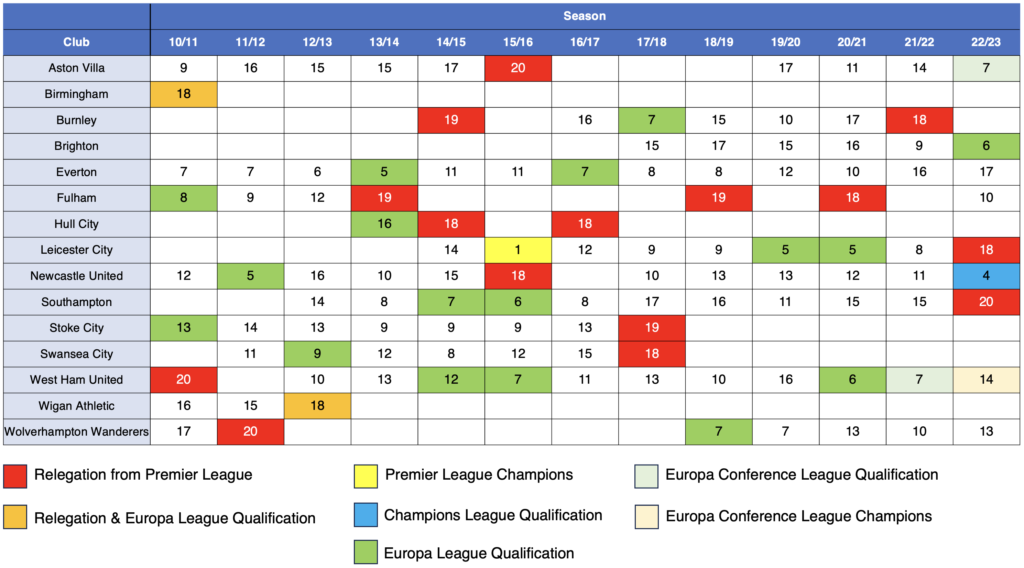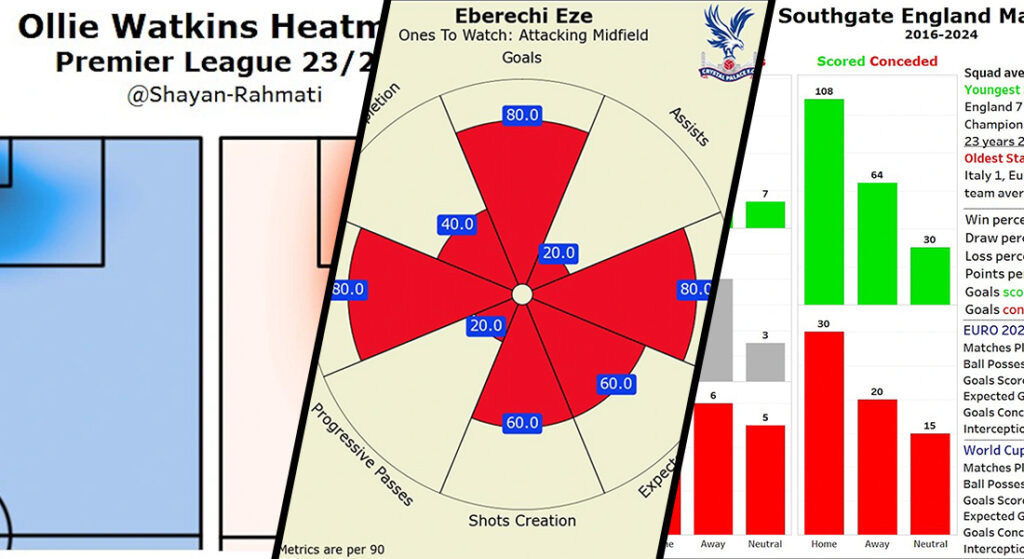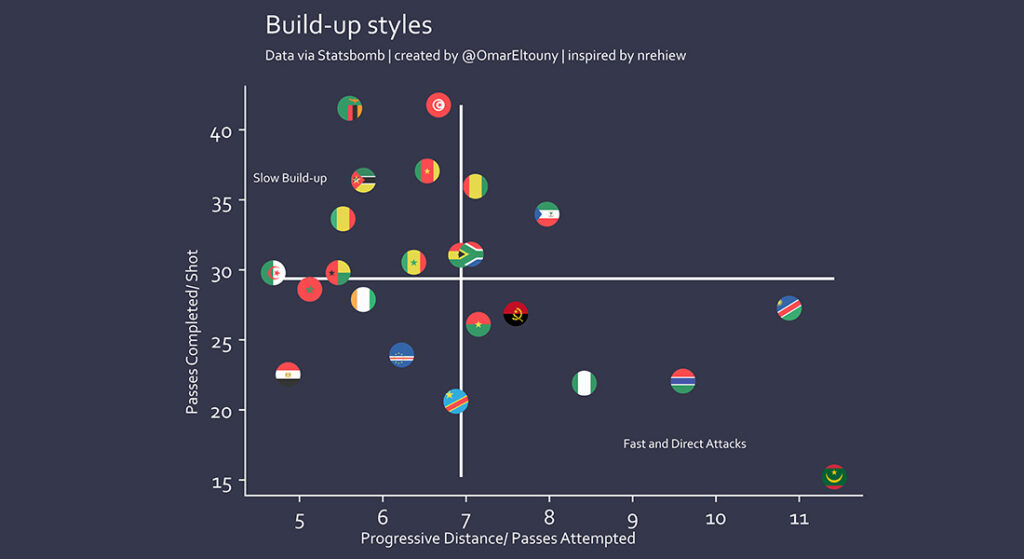The Premier League 23/24 season is in full swing, and as clubs battle it out, there’s more at stake than just domestic glory. Many aspire to claim a coveted spot in European competition, with that ambition driving several Premier League teams. Yet, these European berths often seem reserved for the ‘Big Six’ clubs, including Liverpool, Chelsea, Manchester United, Manchester City, Tottenham, and Arsenal. These football powerhouses often enter the European stage, progressing to later rounds and amassing accolades. But what about the rest of the Premier League? Can European football work its magic for the clubs outside of this elite group?
In this article, we aim to explore the impact of European competitions on Premier League clubs outside the ‘Big Six.’ Through data analysis, we’ll assess the current qualification system, delve into historical European performances, and scrutinise the financial aspects of participating in these prestigious tournaments. Along the way, we’ll touch on critical factors like recruitment, squad depth, and how the landscape of the Premier League is evolving.
Qualification and Its Importance in English Football
In English football, there are a maximum of seven qualification places available for domestic teams to compete in European competitions. For the sake of simplicity, we’ll focus on the 2022-23 qualification process, where the final Premier League standings dictate the qualifiers. The top four teams earn berths in the UEFA Champions League, while the fifth and sixth teams secure spots in the Europa League. The seventh-placed team, then, enters the Europa Conference League play-off round.
The Europa Conference League: A New Hope
The most recent development in European football is the introduction of the Europa Conference League (UECL). This competition offers teams outside the ‘Big Six’ a unique opportunity to shine on the European stage. West Ham United’s triumph in the 2023 edition of the competition is a testament to the changing landscape.
Notably, this competition is experiencing a rebrand, becoming the UEFA Conference League from the 2024–25 season. The introduction of this competition presents a ray of hope for teams aspiring to European glory. While it may not carry the prestige of the Champions League, it provides an avenue for clubs to compete and, as West Ham’s win shows, succeed.
Leicester City: A Recent Tale of Triumph and Turmoil
To illustrate the effects of European football on non-‘Big Six’ clubs, we need to look no further than Leicester City’s recent history. Their extraordinary Premier League title-winning season saw them achieve great success, propelled by a squad featuring names like Kante, Vardy, Mahrez, and Maguire. However, this newfound success exposed them to the wider footballing world, and they couldn’t retain their star players. Although it looked as though they had found a solution to this plague on teams outside the ‘Big Six’. The financial pressures soon caught up to them as they were relegated into the Championship, just six seasons after their incredible premier league title.
The Financial Realities of European Competition
The financial aspect of European competitions cannot be ignored. These tournaments provide financial rewards, including prize money, broadcast revenue, and matchday income. For non-‘Big Six’ English clubs, the Europa League and the new Europa Conference League represent significant sources of income.
The introduction of the Europa Conference League offers clubs a chance to earn much-needed financial resources. The combination of prize money with average performance data results in substantial earnings for clubs venturing into this competition.
Investment: Strengthening the Path to Success
Participating in European competitions demands squad rotation and substantial investments in squad depth and overall club improvement. The ‘Big Six’ clubs in the Premier League have consistently excelled in this regard, ensuring they have deep squads featuring some of the world’s best talents. Without squad depth, European football can be a huge challenge when fighting in domestic cup competitions as well.
Historical Trends: The Rollercoaster Ride for Non-‘Big Six’ Clubs
Since the 2010-11 season, a total of 15 clubs outside the ‘Big Six’ have secured qualification for European football. However, only three of them managed to repeat this success in the following season. Alarmingly, 53% of these teams were relegated in the same or subsequent seasons. Retaining top talents has proven challenging for these clubs, as successful players often attract the attention of bigger European clubs.

Conclusion
Based on the findings, it’s evident that participation in European competitions should not be overlooked by non-‘Big Six’ teams. Achieving success in Europe is a cherished goal, offering historical moments and a chance to challenge the ‘Big Six.’ The introduction of the Europa Conference League presents a new dawn for clubs seeking European glory. As they learn from the past and invest wisely, these teams may disrupt the Premier League’s traditional powerhouses and carve a place for themselves at the European football table.
Community Author

Written by Tomas G.
Football Data Analyst Student









